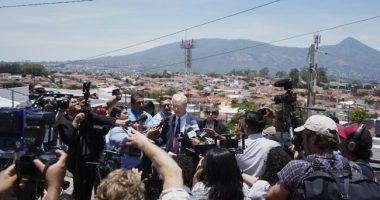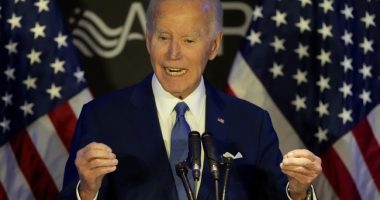The launches, reported by both South Korean and Japanese authorities, marked the 35th day this year that North Korea has conducted a missile test.

North Korea’s last known missile test was on November 18, when it launched a Hwasong-17 ICBM.
The type of missiles fired on Sunday is not yet clear, but Japanese authorities said they reached an altitude of 550km and flew a distance of 500km, suggesting they were not long-range ballistic weapons.
Japan’s Deputy Defence Minister Toshiro Ino said the missiles fell into the sea and no damage has been reported so far to aircraft or ships in the area.
The Japanese government lodged a protest with North Korea through diplomatic channels for its violation of UN Security Council resolutions, Ino said.
North Korea has been testing missiles and components of a range of sizes this year.
Ankit Panda, a nuclear policy expert at the US Carnegie Endowment for International Peace, told CNN last week that the pace of testing this year shows Pyongyang has emerged as a missile power.

“The bigger picture is that North Korea is literally turning into a prominent operator of large-scale missile forces,” Panda said.
Read Related Also: Sydney domestic airport: Reason behind travel chaos as huge queues form
“The word test is no longer appropriate to talk about most North Korean missile launches,” Panda said.

Countries with the highest military expenditure in the world
“Most of the missiles they’ve launched this year are parts of military exercises. They are rehearsing for nuclear war. And that I think, is the big picture this year.”
Panda and other analysts note that North Korea’s missile testing is following an ambitious plan Kim set in place in 2021 to become a power in this area.
The latest tests follow by just days the setting up of a new US Space Force command in South Korea.

The new unit, headquartered at Osan Air Base south of Seoul, “will be tasked with coordinating space operations and services such as missile warning, position navigation and timing and satellite communications within the region,” according to US Forces Korea.
Asked what potential adversaries such as Pyongyang could take from the formation of the unit, Space Forces Korea commander Lieutenant-Colonel Joshua McCullion said he hoped it would have a deterrent effect.
“The hope is that they see we are ready,” he said.







